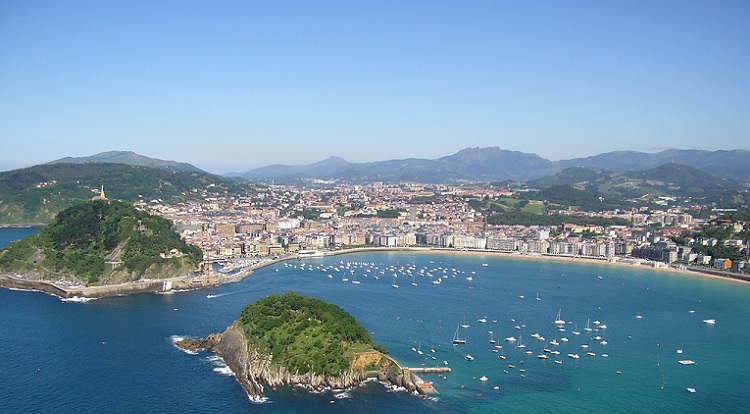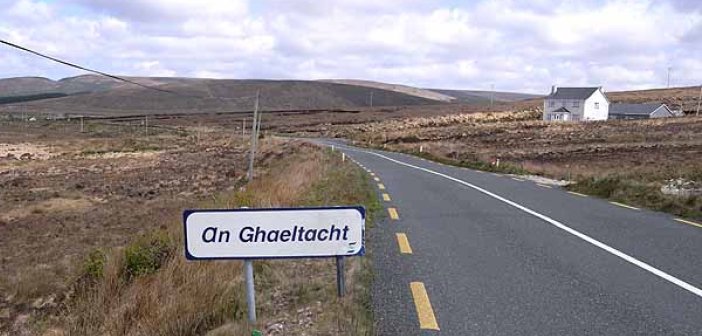A Tale of Two Languages | Lessons from the Basque Country
There once was a small European nation, whose people found themselves part of a much larger and more powerful state. These people had their own language at one time. However, centuries of marginalisation from the state education and legal system, migration and the overwhelming economic necessity of learning another, more widely spoken language had seen its use decline.
People stopped speaking it to each other, dismissing it as an irrelevance. Within a few generations, children were growing up in this country who couldn’t speak it at all. This process reached the point where it was banished to rural hinterlands and barely spoken in public.
There were some who felt strongly about this, and they organised themselves to try and preserve the language – going so far as to develop a standardised form which was easier to learn and to write in. Granted, there were political connotations to this but much of it also came from a place of love and a desire to save all the language stood for from being lost.
To an extent, they managed to stop it dying out completely. Bilingual education was gradually re-established over time, and eventually some schools would even operate entirely in it.
Sound familiar?
The language isn’t Irish though, it’s Basque.
Granted, the two stories are almost the same. There’s one major difference though, which is how successful the efforts have been. Whereas the number of Irish speakers, even in Gaeltacht regions, has remained stagnant or steadily declined, the Basque language has been rejuvenated.
Just compare the 1991 study by the Basque government which showed less than 25% of people could speak Basque with that in 2016 which showed 34% could. What’s even more impressive is that the percentage of those under 25 who can has increased from under 25% to 70% in the same period, and Basque is heard intermingling with Spanish across the Basque country south of the border.
It’s even occasionally been heard on Dublin Bus this summer.

Why then, have the Basques succeeded where the Irish failed given the parallels between their situation? It’s too easy and reductive to blame education policy, the language being financially useless or public indifference here. 125 years on, the foundation of the Gaelic League, which organised classes, feiseanna and ceili alongside campaigning for state recognition and educational support to help revive the spoken use of Irish, the Irish language remains endangered.
The daily use of Irish isn’t especially common amongst those who were or are taught almost exclusively in the language to great success, and can speak it fluently.
I’m as much a culprit as anyone else in this respect. I went to a naoinra, followed by an all-Irish primary and secondary school and I probably spent as much time speaking Irish as English between the ages of 3 and 17. But this rarely extended into my social life – my classmates and I practically never spoke it to each other away from the school’s premises, and I almost forgot about it entirely after I finished and went to college.
Ní raibh dúil agam, to use the Irish for “I wasn’t bothered.”
What’s worse is that I never disliked it or thought it irrelevant – quite the opposite. It just never occurred to me to actually use it rather than think others should learn it, an experience that’s been mirrored by a large amount of others who drift away from Irish after school. Even after I regained an interest in actually speaking Irish again after several years abroad, I would sometimes meet people and know them for months, if not years, before learning that they were also a fluent speaker. It just wasn’t talked about.

There’s always the argument cited that it has no practical use, which isn’t obviously untrue – bar very remote parts of Gaeltacht regions it’s probably easier to go through your entire life just speaking English.
But surely the same goes for Basque, given practically all Basques also speak Spanish or French. In fact, given how severe the dominance of English over nearly all other languages has become, it’s lack of any obvious utility is probably even more pronounced there.
The key difference is that the Basques have been much better at understanding that the true value of a language isn’t as a political weapon, means of career advancement or totem of the past, but as something much simpler.
This something is embodied in the phrase “Euskara bizi nahi dut”, which roughly translates as “I want to live Basque”. Like Gaeilgeoirs in Ireland or Welsh speakers in Wales, Basque speakers represent a community brought together by a common interest. Nobody has to speak Basque in their daily life, but they do so as a means of connecting with other people – just like every other language. This is, with a remarkable lack of subtlety, made manifest by Korrika – a festival in which a baton is passed from one end of the Basque country to the other to emphasise how important their language is to them. This needs thousands upon thousands of people to come together in common cause, alongside innumerable volunteers to make it happen at all.
Those who want to encourage the daily use of Basque have never lost sight of how it can be a priceless social outlet. After all, language use is intrinsically sociable – why would anyone go to an Irish-language event to hunch sullenly over a phone or a pint for the evening?
There has been a breakthrough in this respect in Ireland. The Pop-Up Gaeltacht and online initiatives such as @theirishfor and its sister publication Motherfóclóir have been successes beyond even their founders’ aims – creating digital networks publicised on social media which then congregate at organised meetups where caint, ceol agus craic flow freely.
What’s most refreshing about attending these is how inclusive and diverse they are, with learners of all abilities and backgrounds present.
How then, can Irish speakers build on these successes?
One answer might be to revisit the original mission of the Gaelic League. It’s initial popularity was such that it managed to establish 700 branches across the country within its first 25 years. It’s hard to believe that this was all due to a desire to “de-anglicise Ireland”, despite what its founders may have stated. Rather, the movement provided a social outlet to rural communities badly lacking therein.
As many traditional social outlets in rural communities, particularly those associated with the Catholic Church, fade into the past, could Irish-language events and groups come to fill that space and bring people together again to take the language out of the classroom and into people’s daily lives just as Euskadi has in the Basque country?
Just a thought.
